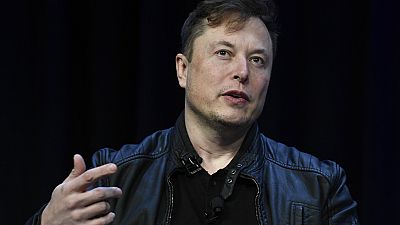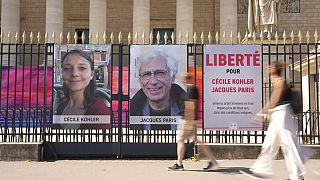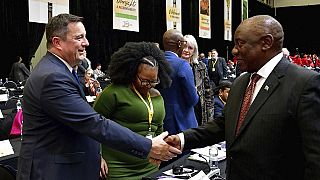South Africa
Elon Musk’s company Starlink is eyeing major investment in South Africa as it tries to work around Black ownership law.
The satellite manufacturer is looking to spend 2 billion Rand ($113 million) to expand broadband access in the Southern African Development Community region, according to The Africa Report.
However, the business venture has been stalled by South Africa’s Broad-Based Black Economic Empowerment law (B-BBEE).
The B-BBEE requires licensed telecom companies to have 30% ownership by Black South Africans or other historically disadvantaged groups.
Originally from Pretoria, Musk has had strained relations with his former home country since accusing the South African government of failing to prevent what he called a “genocide” against white farmers. The issue was later taken up by U.S President Donald Trump in a meeting with SA President Cyril Ramaphosa in the White House on May 23rd.
Musk has publicly criticised the B-BBEE for being racially discriminatory. In March, he took to his social media X writing: “Starlink is not allowed to operate in South Africa, because I’m not black”, seemingly in reference to the B-BBEE.
Two months later, Communications Minister, Solly Malatsi, proposed an amendment to the B-BBEE, allowing companies to forego shared ownership in favour of Equity Equivalent Investment Programmes (EEIP).
The EEIP workaround means that Starlink can invest in local skills, infrastructure and digital inclusion, including a 500 million Rand ($28 million) investment in free high-speed internet to 5000 rural schools, according to The Africa Report.
The law amendment has been met with backlash from the opposition and members of the public. The concern is that a deal with Musk would water down hard-fought efforts to enhancethe economic participation of Black South Africans after Apartheid.
"The message being sent is that if you are a powerful foreign billionaire, you can sidestep South Africa’s laws, while our local businesses are forced to jump through hoops", said Nobuntu Hlazo-Webster, deputy leader of the opposition party Build One South Africa.
Solly Malatsi has rejected that EEIP gives privileged treatment to Musk and Starlink.
There is still some legislative ground to cover before Starlink can expand to South Africa. Given the B-BBEE’s historical significance. The new amendment could be challenged in court if interested parties decide to appeal or block the law change. In total, the process could take upwards of two years.














01:00
Pix of the Day: July 3, 2025
01:11
US pauses military aid to Ukraine over depleted weapons stockpile
01:12
US President Trump announces surprise summit with five African Nations
02:07
Anxiety grips Haitian community in United States over termination of protected status
Go to video
Looming funding shortfall could reverse global progress against AIDS, warns UNAIDS chief
01:23
USAID officially shuts doors, American government announces